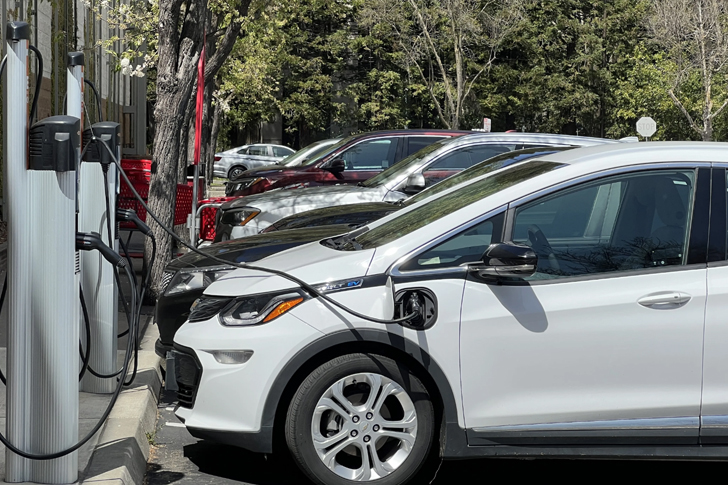Electric Vehicle Pricing May Be More Affordable Than Anticipated
As the world increasingly shifts towards sustainable transportation, electric vehicles (EVs) are at the forefront of this transition. With concerns about climate change and environmental degradation intensifying, more consumers are considering electric cars as a viable alternative to traditional gasoline-powered vehicles. One of the major hurdles for many potential buyers has been the perceived high cost of EVs. However, recent trends and market analyses suggest that electric vehicle pricing may be more affordable than previously anticipated.

Understanding the Drop in EV Prices
In the last few years, the electric vehicle market has witnessed substantial growth, propelled by technological advancements and increased production scale. Battery technology, which represents a significant portion of the cost of electric vehicles, has seen rapid improvements resulting in lower costs. According to a report by Bloomberg New Energy Finance, the price of lithium-ion batteries has fallen by almost 89% from 2010 to 2020, and this trend is expected to continue.
This decrease in battery prices is crucial because it directly translates to the lowering of EV prices, making them more accessible to a broader audience. Moreover, as major automakers like Tesla, Ford, and Volkswagen ramp up production, economies of scale further drive down costs. This increased competition not only helps lower prices but also spurs innovation, leading to better quality and more feature-rich electric vehicles.
Government Incentives and Policy Support
Another key factor contributing to the affordability of electric vehicles is the array of incentives offered by various governments worldwide. These incentives are designed to make EVs more competitive against conventional vehicles and include tax rebates, grants, low-interest loans, and other financial benefits.
For instance, in the United States, the federal government offers a tax credit of up to $7,500 for new electric vehicle purchases. Many states have additional incentives that, when combined with federal offers, can significantly reduce the upfront cost of acquiring an EV. Similarly, European countries and China have rolled out substantial incentives for electric vehicle buyers, including reductions in sales, value-added, and import taxes.
Long-Term Cost Savings
Beyond the initial purchase price, electric vehicles offer long-term savings that can make them even more economically attractive. EVs have fewer moving parts than internal combustion engine vehicles, which translates to lower maintenance costs. Additionally, electricity is generally cheaper than gasoline on a per-mile basis in many regions, which means that the cost of operating an electric vehicle can be lower over the vehicle’s lifetime.
Research from Consumer Reports in 2020 indicated that EV owners could save an average of $4,700 in repair and maintenance over the life of the vehicle compared to gas-powered cars. Additionally, with fewer systems like exhaust systems and transmissions, the typical wear and tear costs are significantly reduced.
Market Trends and Consumer Adoption
The burgeoning interest in and adoption of electric vehicles have been evident in sales figures. Despite the economic slowdown caused by the COVID-19 pandemic, global EV sales have continued to climb, indicating a strong and growing demand. In 2019, a total of 2.1 million electric vehicles were sold worldwide, according to the International Energy Agency (IEA). This number is expected to rise as more consumers recognize the economic benefits and as more models become available across different price points.
With technological advancements, supportive policies, and increased awareness, it is projected that by 2025, there will be over 350 different electric vehicle models available, which will provide consumers with a wide range of choices, from budget to luxury models. This diversity is likely to cater to a broader demographic, further propelling the adoption of electric vehicles.
The Future Outlook
While challenges like charging infrastructure and range anxiety still persist, the trajectory towards an electric future looks promising. Major investments in charging infrastructure by governments and private companies are alleviating range concerns, and continued advancements in battery technology are increasing the driving range of EVs.
Considering all these factors, electric vehicle pricing is more affordable than it has ever been and is likely to continue becoming more so. For consumers on the fence about purchasing an EV, the current market trends and the long-term savings potential present compelling reasons to consider making the switch. As more people adopt electric vehicles, we move closer to achieving a sustainable and environmentally friendly transportation ecosystem, benefitting not just individual consumers but society at large.
In conclusion, electric vehicles are not only becoming more technologically advanced but also more financially accessible. As our society progresses towards more sustainable solutions, electric vehicles stand out as both an economically and environmentally prudent choice, heralding a new era in the automotive industry.







Recent Comments